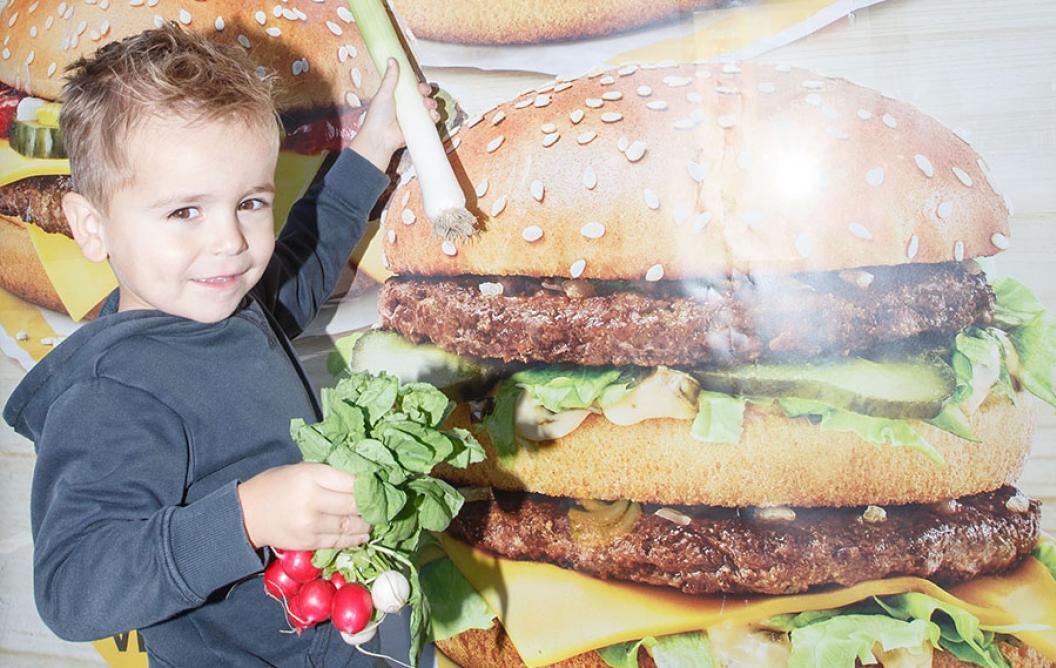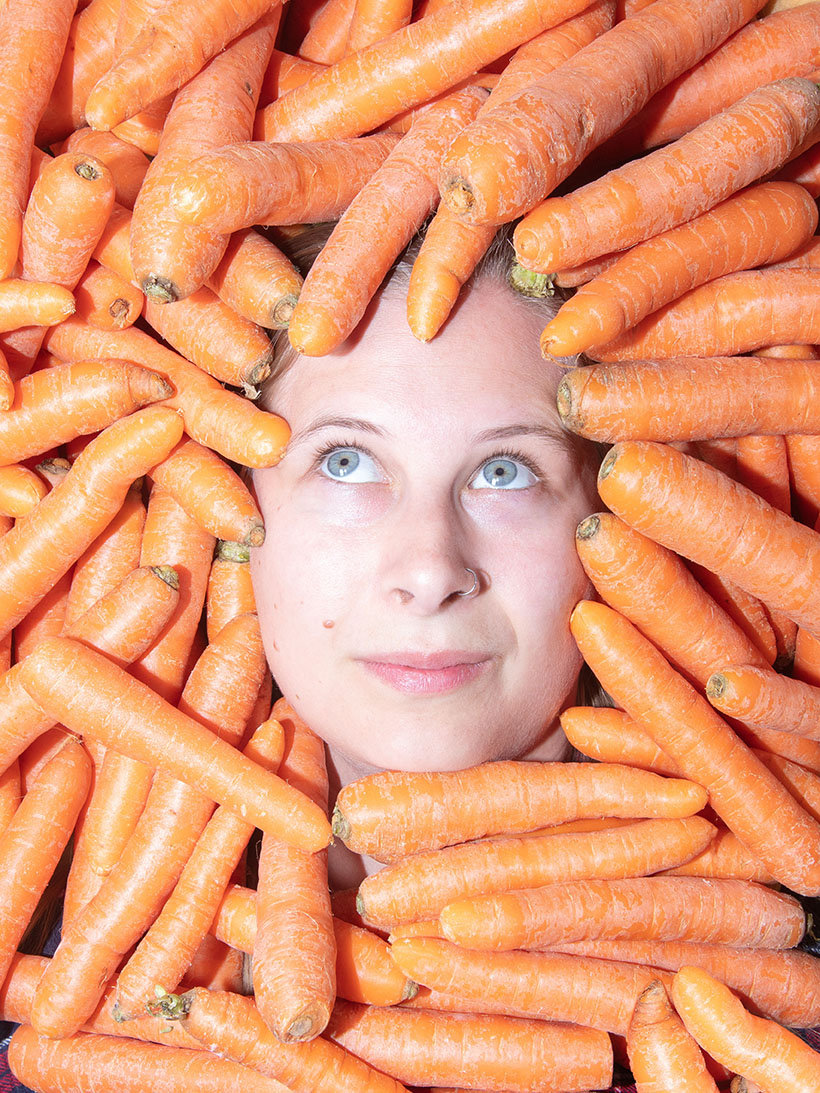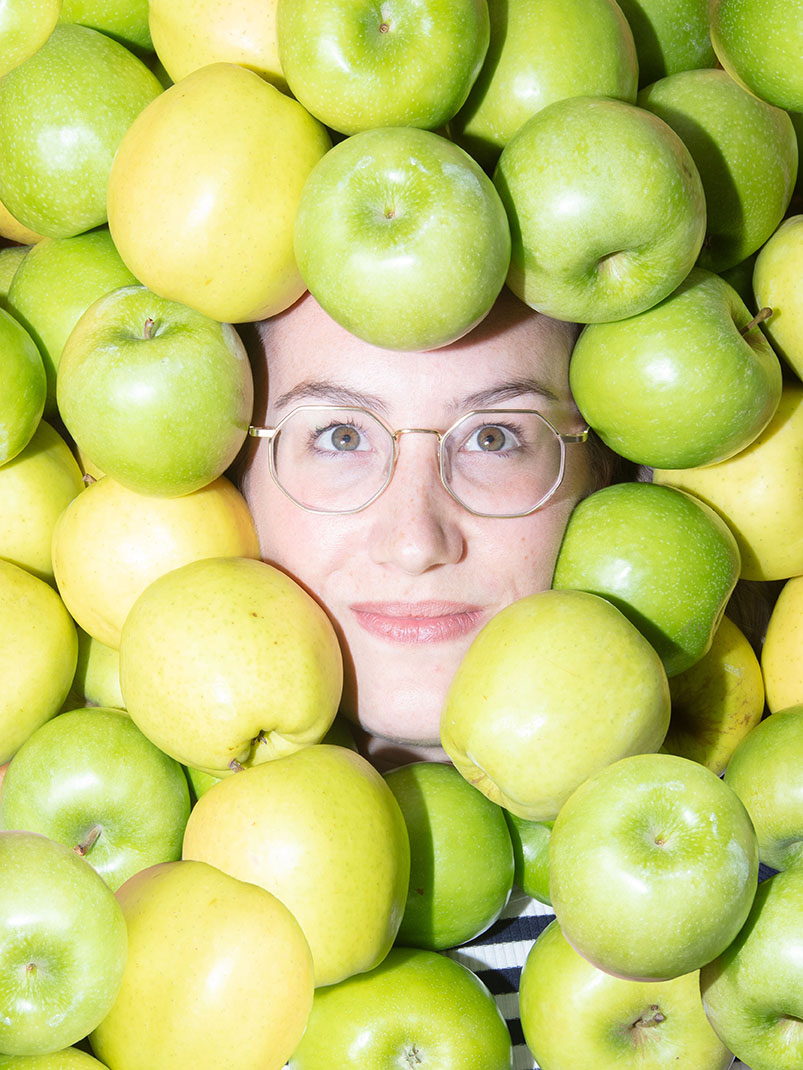“Mmm… carrots!” How to teach toddlers to love vegetables
Parents of small children can usually get away with serving apple sauce, especially if it’s the chunk-free variety. Try putting something green on their plate, however, and those little teeth invariably clamp shut. Teaching toddlers and pre-schoolers a healthy diet is not easy. But children are not preordained to dislike vegetables, say PhD candidates Anouk van den Brand and Britt van Belkom. The key to success: persist and reward.

“Our research is first and foremost relevant for parents who are struggling with their child’s eating behaviour,” says Anouk van den Brand, a PhD candidate and part of the research team. “Early childhood is an important time to establish healthy-eating habits. The fewer vegetables you learn to eat in those early years, the less likely it is that you’ll eat them as an adult.”
From fennel to slime
Van den Brand is following a group of children from the ages of three to five in nurseries and playgroups to find out what distinguishes picky eaters from others. “We give them pieces of tomato and cucumber to taste, plus fennel and celeriac, which are less familiar,” she explains. “It's interesting to see the differences between children. Some just like the taste, some eat it even if they dislike it, and others refuse to taste it at all.” What underlies these varying reactions?
One contributing factor is sensitivity to texture. Van den Brand also has the toddlers play with sand and slime, and records their reactions. Children who dislike having sand on their hands or under their feet also tend to struggle with the different textures of food. Another factor that comes into play is expectation: “We look at whether they can distinguish fruit from vegetables. Children who are better at that have a better idea of what to expect and are generally less difficult when it comes to eating.”
Vegetable king or queen
That it helps for small children to know what they’re eating is a useful practical insight. As part of her PhD research, Britt van Belkom investigated how nurseries can encourage vegetable consumption in children between one and four years old. Due to the corona crisis, she couldn’t perform the tests herself, but had to leave them in the hands of nursery employees. “A pity,” she says, “but on the other hand, it saved me a lot of time. Nearly 600 children have now been tested; that wouldn’t have been possible on my own.”

Anouk van den Brand studied psychology at Utrecht University. In 2021 she started her PhD research at Maastricht University on the differences between picky eaters and other children. Her PhD is part of the major research project ‘Cognitive processes in learning to like vegetables,’ for which Professor Chantal Nederkoorn of the Faculty of Psychology and Neuroscience received an NWO Vici grant.
The children were divided into three groups. For the control group, nothing changed. Children from the second group were offered vegetables every day for three months instead of fruit or biscuits. The same held for children in the third group, who additionally received a reward if they ate a piece of vegetable. The best eaters, who ultimately tasted all vegetables five times, were crowned ‘vegetable king or queen’ of the day. A simple but effective method, as it turns out.
“Previous research had already shown that repeated exposure works,” Van Belkom says. “If you offer a child a certain vegetable eight to ten times, there’s a significant increase in how tasty they find it. The child gets to know and appreciate the vegetable. Our research shows that a reward system reinforces that effect. Offering a reward increases their willingness to taste the vegetable sooner and more frequently, so they also come to like it more quickly.”
Do try this at home
If your toddler keeps on refusing that broccoli, their advice is to just keep going. “Most parents give up after offering something four times,” says Van Belkom. “It helps to continue up to eight or ten times.” And don’t reward food with food, as that interferes with the child’s hunger and satiety system. Use stickers, stamps or cards instead, as many parents already do during potty training.
Children should also be exposed to the different forms of vegetables. “For practical reasons, we only work with raw vegetables in our research,” says Van den Brand. “But at home you can easily show them how you turn raw carrots into a stew. And from time to time, be sure to enjoy a crispy radish or a juicy tomato yourself; imparting healthy habits means modelling them too. Show children that you eat and enjoy vegetables; they learn so much from that.”

Britt van Belkom studied biomedical sciences in Maastricht and in 2020 started a part-time PhD at UM’s Campus Venlo. Her research focuses on the promotion of healthy eating behaviour in young children and the psychological and environmental factors in the development of overweight and obesity. She also works as a project manager for Brightlands Campus Greenport Venlo.
Also read
-
Lee Bouwman, a vascular surgeon and endowed professor of Clinical Engineering, specialises in the implementation of groundbreaking healthcare technologies. The key to success, he says, lies in the collaboration between engineers and clinicians. This approach has already resulted in a range of...
-
On April 19, during her inaugural lecture, Anna Wilbik explained how we can squeeze out the whole potential of data to the last drop.
-
Adriana Iamnitchi’s career appeared like a bed of roses. She served as a full professor in the Department of Computer Science and Engineering at the University of South Florida. Nonetheless, she sought out new challenges and moved to Maastricht, where she focused her research on social media.


